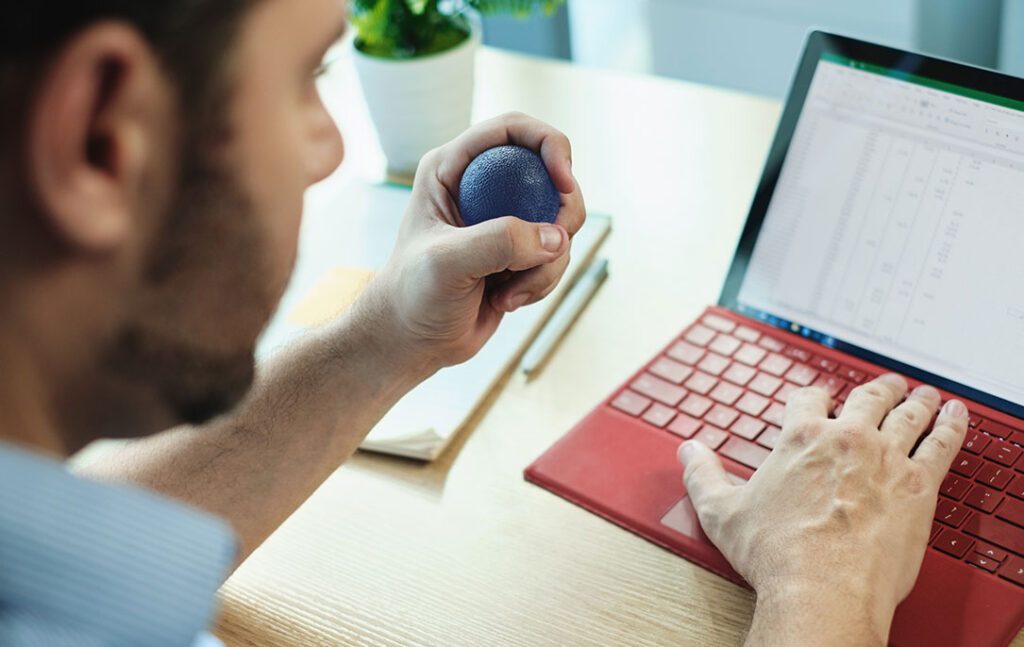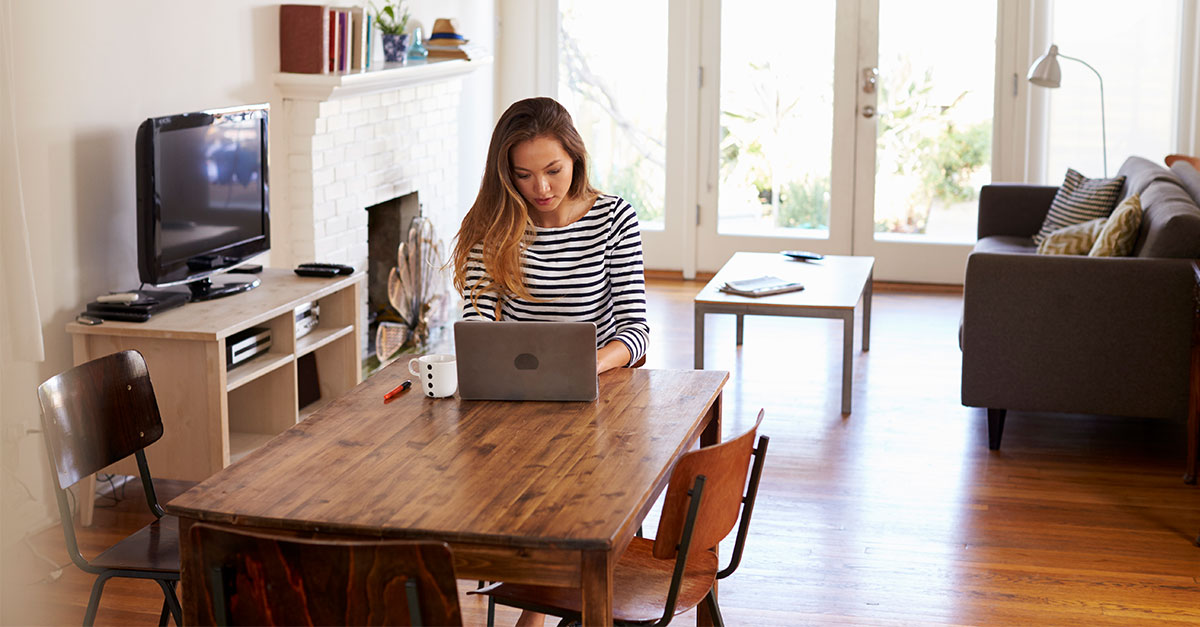The first day at a new job is always intimidating. During a pandemic, it can be downright overwhelming. Working remotely adds additional layers of stress and complexity to the process.
It can be very difficult to show your personality and to get to know your coworkers and company with your computer screen as a barrier. I recently went through the onboarding process at Summit while fully remote and have a few tips on navigating the job search and onboarding process at a new company during COVID-19.
1. Get Out of Interview Mode
Congratulations – you got the job! You can stop interviewing now…no, seriously…you can really stop. The interview process can feel incredibly long and drawn out, and the age of remote work has only lengthened the timeline for this process. For me, it was roughly 2 months from my initial phone screening to starting at Summit. Before I interviewed with Summit, I spent a solid year interviewing with various other companies, which made the process feel completely infinite. COVID-19 did not exactly help expedite the process, so finally getting the job and no longer needing to interview was quite the sudden shift for me. The repetitive nature of constantly interviewing can become a steady routine, so getting out of interview mode is important once you get the job. You do not need to make every conversation about your work experience anymore; you have already proven you are the right fit, and more importantly, your company agrees!

Now that you have landed the job, you can take a deep breath and really take your time to get to know your coworkers and vice versa. Relax and ask them questions about their passions and interests. Maybe even reach beyond typical questions about their work-life.
- What are some of their favorite things?
- What are some of their hobbies and passions in life?
- Have they picked up any new ones since COVID started?
You will find that people love talking about themselves (no really, they actually do), especially in a time where we are cooped up and isolated in our homes.
We are experiencing this strange social shift together and have common ground to stand on, which is a great icebreaker and relieves some pressure. Plus, it helps that everyone is starved of social interaction and ready to chat about virtually anything.
2. Leave your expectations at the door – these are uncharted waters.
In this current climate, there’s a good chance that your first day will be the first of many that are handled remotely. It may seem strange and intimidating to meet a bunch of new people over video chat, but don’t let that discourage you. Remember – you were able to showcase your professional abilities virtually, so getting to know your new position and coworkers shouldn’t be any more of a challenge. If anything, there are some aspects that you may find end up playing to your advantage.
Keep in mind that it is going to be a continuous adjustment for everyone involved. While you are worried about learning about your new position, your company is equally concerned about training someone remotely. So if you feel stressed, have no fear; you’re not the only one who feels a little lost and confused.

There will inevitably be technical errors and miscommunication, so you might as well enjoy the rollercoaster ride. Online mishaps are surprisingly effective ice breakers.
Something taking a while to load? Maybe your coworker has a cool poster or piece of art in their home that you can complement or some house plants that you can ask about.
Your cat just walked on camera and started yowling for food as you were talking? Don’t sweat it, laugh it off, maybe even allow for a casual introduction. I promise no one is upset that a fluffy little fur-baby just came into the frame for a few seconds.
If your coworkers are working from the comfort of their homes, the setting is naturally going to be more casual than a typical office. Instead of stressing over the potential hurdles this may present, take advantage of these new circumstances, and get to know them on a more personal level.
3. If possible, create your own at-home workspace.
Most people, myself included, were not prepared to spend a few months working from home. I live in a relatively small 2-bedroom apartment with a roommate in The Fan neighborhood in Richmond, VA, so I barely even have a kitchen, let alone a home office. Whether you have an office or not, do not try to work in the comfort of your bed. Just don’t do it. Or on the couch in front of the television, for that matter. You will not be productive if you try to turn your “play” space into your “work” space; you will end up watching more television or eating a bunch of snacks to procrastinate.

I take my laptop outside onto my fire escape or sit at the kitchen table by my bookshelf to avoid this. While this isn’t quite the same as having a home office, it’s still helpful to have a designated spot primarily for work. If possible, you could even go to a nearby park and use a Wi-Fi hotspot (while practicing social distancing and wearing a mask, of course).
Having a workspace will also help you when you need to take a break. If you get up and leave, but you have a space to return to, you will be far less likely to procrastinate. After all, your workstation is waiting for you. If you have kids, a roommate or a partner that you live with, having a designated workspace may also help create some necessary separation while you are clocked in. When they see that you are in your work spot, they will know not to distract you until you have left.
4. Get dressed up. Every. Single. Day.
This probably helped me the most while working from home. It may seem small, but a routine will help return a sense of normalcy into your life. I know that it is tempting to roll out of bed 5 minutes before you are on the clock and shove coffee into your face before getting productive and cranking out a bunch of work, but I encourage you to set a normal morning routine. If you stay in your pajamas all day, you won’t feel as productive and may be more inclined to procrastinate. Put on an outfit that makes you feel intelligent and smart, or, if it applies to you, do your makeup and hair extra nicely to give yourself that extra confidence boost. This will add a sense of normalcy to your day, make you feel more put together, and prepare you to take on the day.

At the end of the workday, do not just get out of your work clothes and into your pajamas; put on something cute that makes you feel good! You will be surprised by how much this will impact your mindset, energy, motivation, and confidence. You do not want the only times you feel put together to be while you are working. Otherwise, you might not feel as energized while you are not working, and therefore won’t wake up feeling energized when it is time to work the next day (turns out there is some truth behind the phrase “look good, feel good”). Switching things up when you clock out, even something as simple as an outfit change can also help you distinguish when it’s time to get out of work mode and recharge for a bit.
5. Make sure to clock out both physically and mentally.
Bringing work-related stress home is a normal challenge. Avoiding that work-related stress when you work from home is an even bigger challenge. It can feel nearly impossible to find any relief from the stress. In a sense, working from home means you are stuck in the office for the majority of your waking hours (and resting, for that matter). Once the end of the workday approaches, you may find yourself needing to put in extra effort to separate your work life from your home life. Set a strict rule for yourself: when it is time to clock out, put your work laptop in a safe and throw away the key (figuratively speaking, of course).

As I mentioned earlier, working from home can impact productivity when you have too many distractions around, but it can also have the opposite effect. When your work and home environment are identical, it can be hard to start working and even harder to stop. If you are in your work environment all day, you may feel the need to keep on working. This feeling might intensify once you factor in the extra anxiety surrounding COVID-19 and job security, especially for someone just starting in a new position. Make sure you plan time to relax into your evening and give your brain a bit of a break so you don’t drain yourself or suffer from work fatigue.
6. Self-care is essential to decompress.
You can implement getting your brain out of “work-mode” with a regular self-care routine. This could be anything you enjoy doing that will help you relax and shift your focus from work. I make sure to go on bike rides and picnics with my best friend or learn how to bake a new recipe. If you are someone who feels the need to constantly be productive, giving yourself a task that isn’t work-related can help satisfy this urge. If you have excess productive energy, maybe put it into other adult chores (yes, I mean the ones you are avoiding…) instead of working extra hours. Do some laundry, clean the kitchen, spend some time with your children if you have them. This way, you can still feel productive without working 24/7.
A nighttime routine is just as important as a morning routine. When it comes time to wind down, try to avoid mindlessly scrolling through your phone (it actually suppresses melatonin), or checking your work email. Give yourself something else to do before bed, so you don’t end up tossing and turning all night from being wired. I have found that reading a good book before bed helps shut my mind off instead of lying awake and stressing about everything I need to prepare for the next day. If you have the time for it, something as simple as doing a face mask or taking a relaxing bath can be enough to get your mind ready to rest, and therefore more alert the next day.
The age of remote work and social distancing is likely here to stay for the foreseeable future. Instead of letting this fact discourage you, try to shift your perspective and seek new opportunities to learn in our current climate. You may find yourself pleasantly surprised with how seamless the transition ends up being. Don’t be afraid to communicate with your employer if you end up a little overwhelmed adjusting to a new job or the changes that come with COVID-19 (or both). Most people are willing to work with you to help you adjust, especially when everyone has had to adapt in some way. Just remember – everyone is as disoriented as you are; there is no need to feel isolated or intimidated by change.
